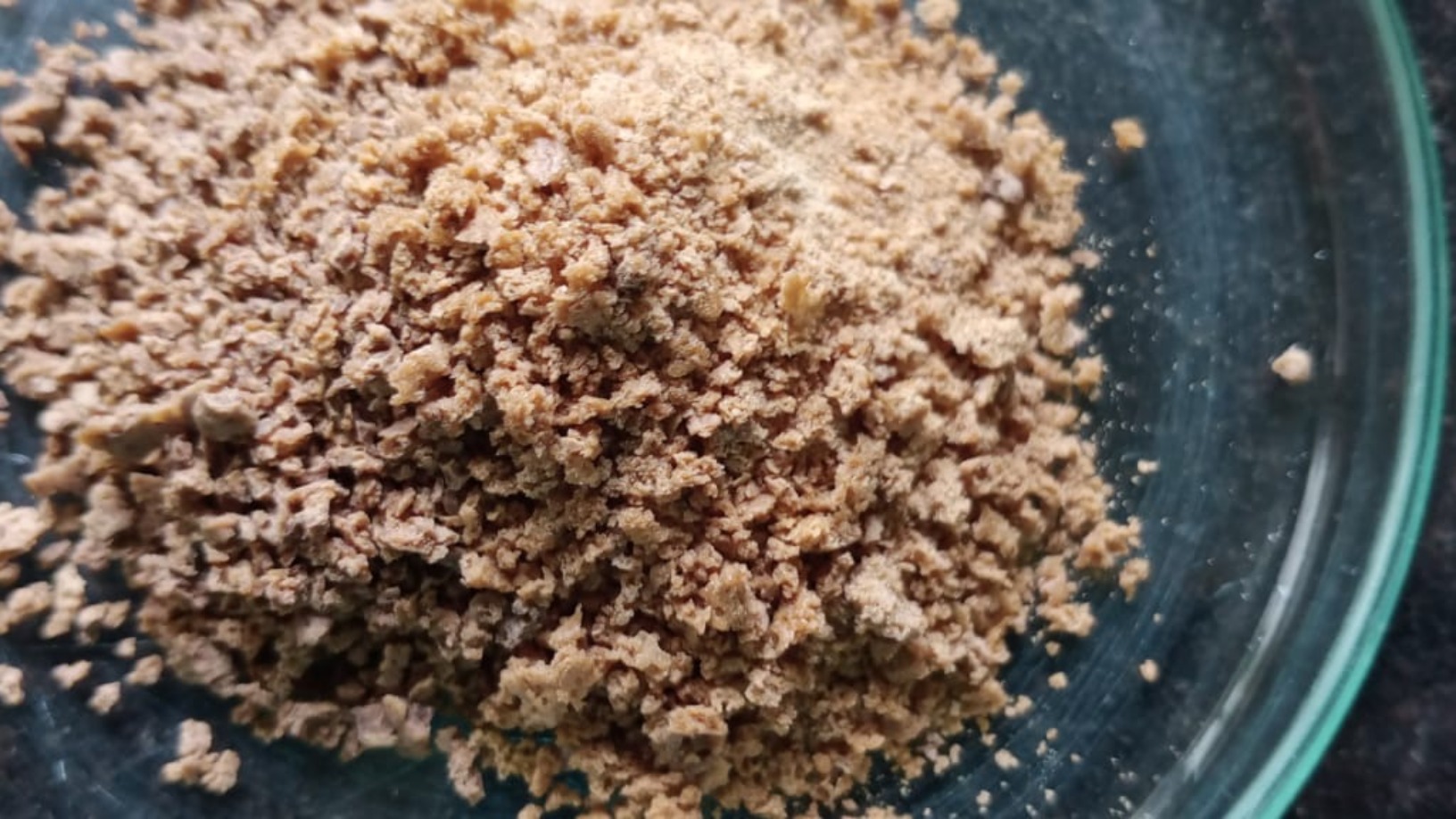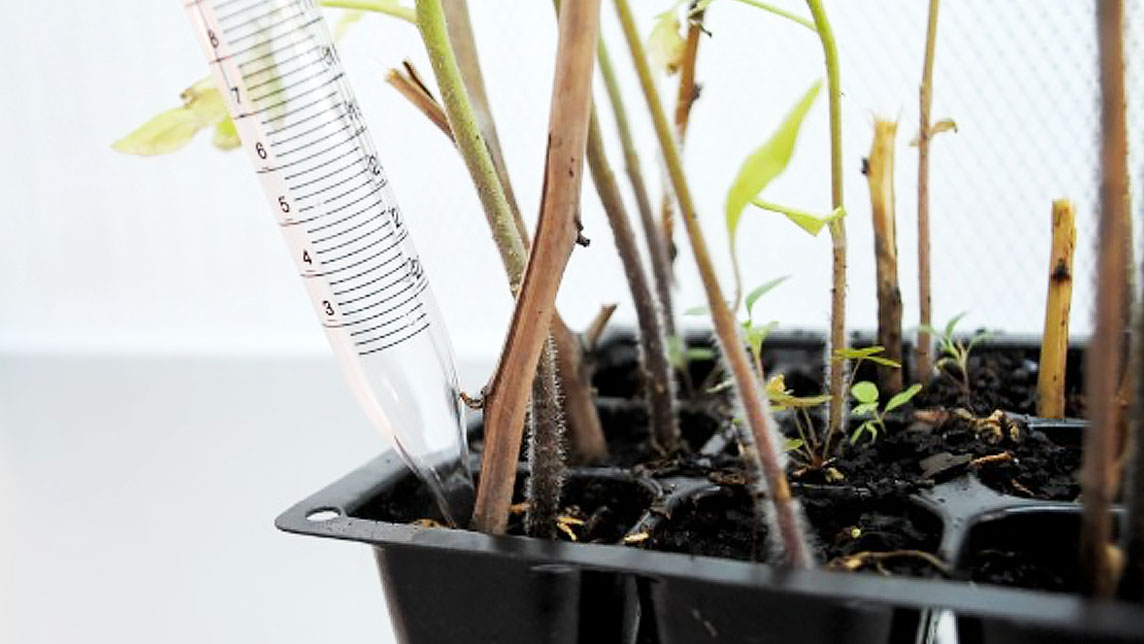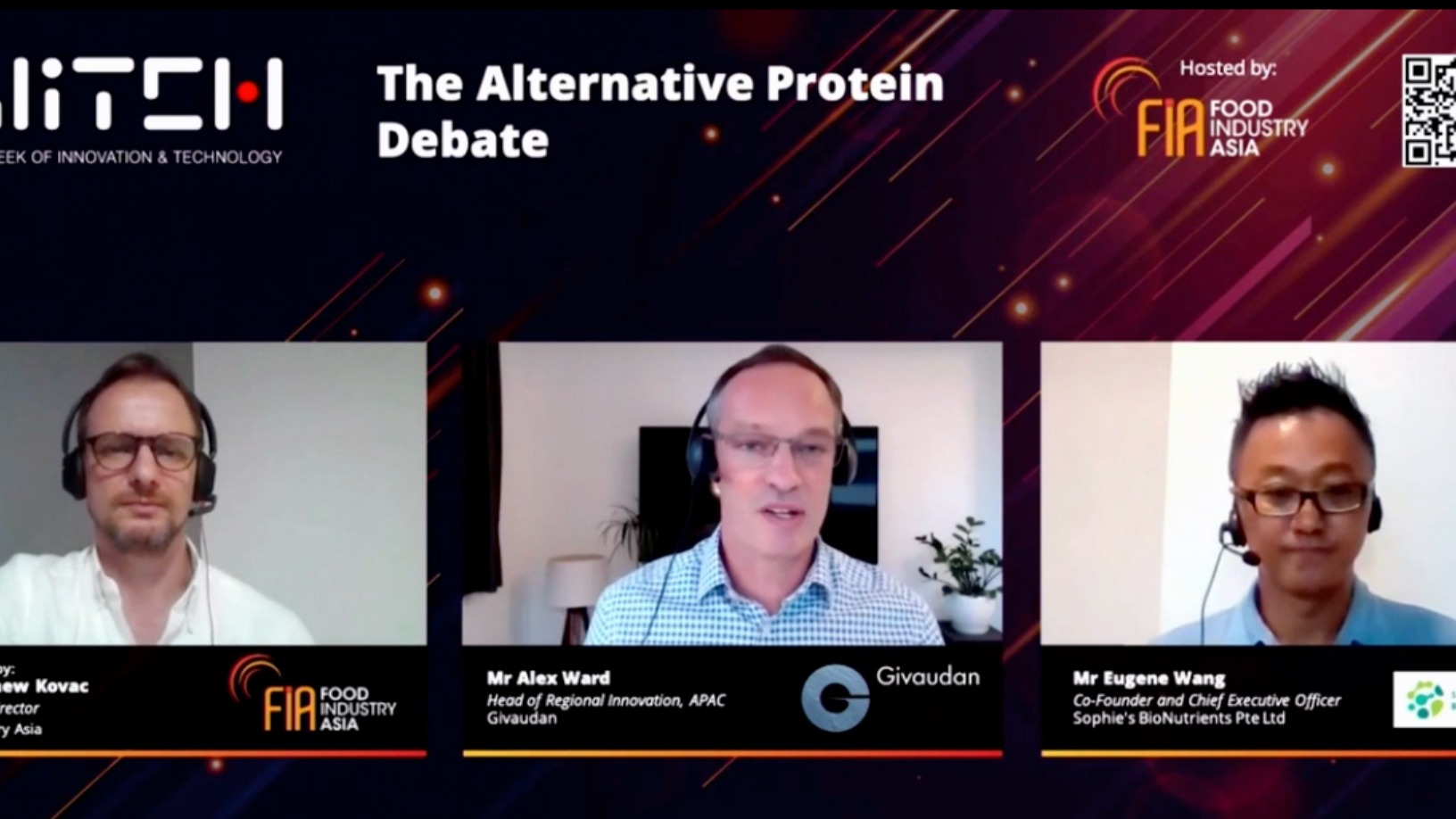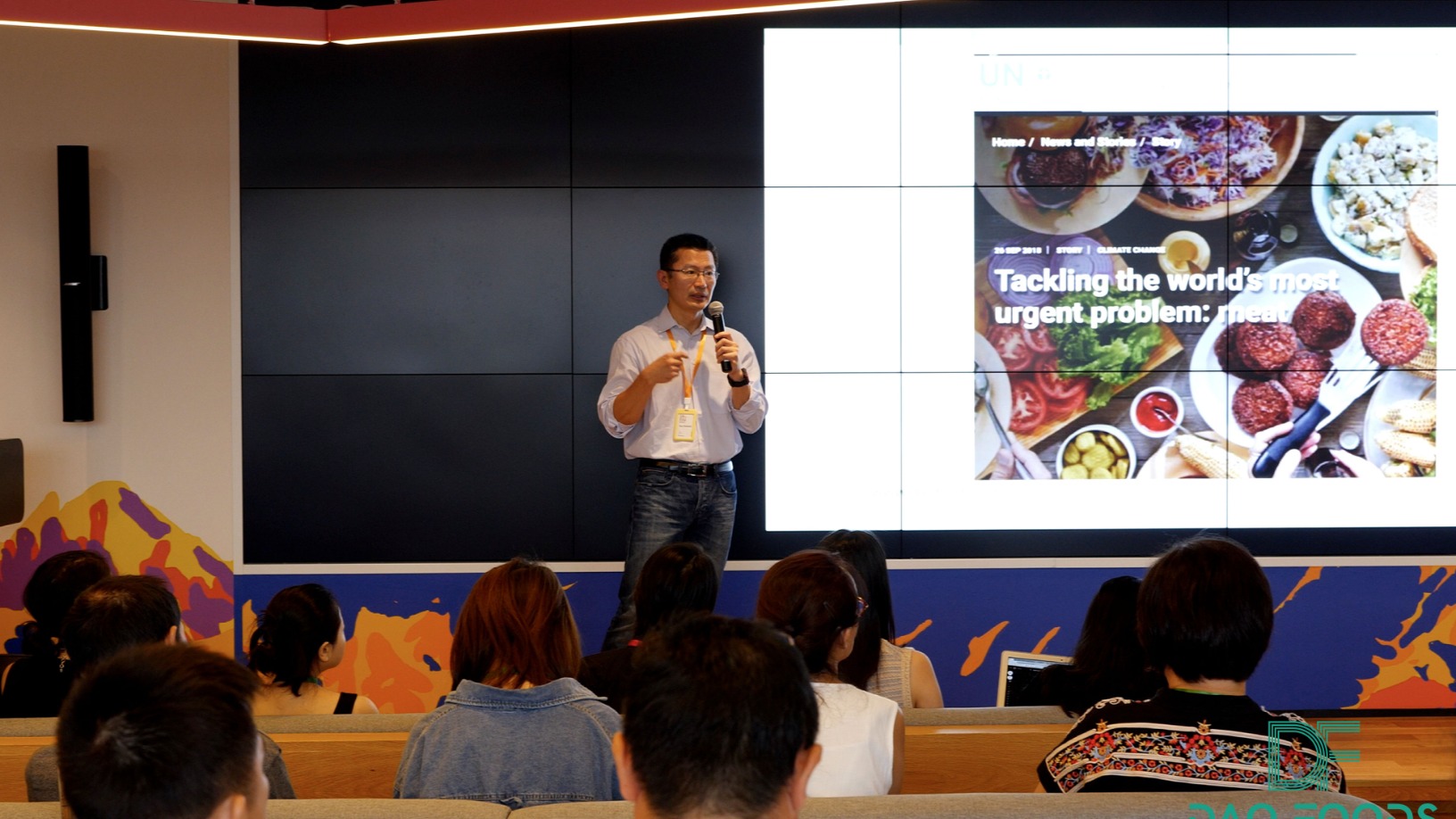Founded in 2013 by biotechnologist Ezhil Subbian and her husband Vinod Kumar in India, String Bio is the first startup in Asia to use methane gas to produce protein and the third such producer in the world.
Targeting the global market for alternative proteins, starting with the animal feed sector, String Bio has developed a proprietary biotech-hardware platform, String Integrated Methane Platform (SIMP), to extract methane from natural gas or biogas derived from food waste. The gas is then fed to bacteria incubated in the SIMP to produce alt-protein powders in a natural and organic way.
“It's rather like brewing where sugar is used to convert yeast into alcohol, here the bacterial cells consume the methane and convert them into protein,” Subbian told CompassList in an interview in December 2020.
The company’s first protein powder product, suitable for animal feed, has undergone extensive testing by a number of animal farms and agricultural research centers in India, Asia, Australia, the US and the EU. Eight patents for its technology have been registered globally.
The fermentation of methane-eating microbes was first developed in the 1980s by Statoil in Norway. Aptagen was first to turn the technology into a commercially viable enterprise in 2000, followed by Calysta in 2011, both in the US. Aptagen has backers in oil-rich Saudi Arabia and Calysta has already expanded to Asia by building an aquafeed factory in China.
String Bio, which is raising Series B funding, last received investment in 2019. Its Series A round then attracted investors such as Indian intensive poultry farming giant Srinivasa Hatcheries – then a potential customer for the startup – in its first tech investment. Poultry and aquaculture are the two market sectors that String Bio is targeting for its protein powder. The EU has already approved the methane-based protein to be used in animal feed.
Twin sustainability fixes
The String Bio model was created to tackle two huge environmental problems simultaneously. The world is expected to face an animal-based protein crisis by 2050 due to unsustainable demand from growing populations worldwide. Methane, a greenhouse gas accounting for at least a quarter of total harmful emissions, is 80 times more harmful than carbon dioxide over a 20-year period, according to a UN study.
“Our driver has been to redefine manufacturing, such that sustainability becomes inherent in how we manufacture; by using less land and less water. We really believe that's the way forward for manufacturing, particularly for the food sector,” Subbian said.
“The population continues to grow, but there are limited resources in terms of land and water so I think we really need to enable food manufacturing, where land and water usage become inherent in how we produce.”
One of the main advantages of creating protein by fermentation is the quality of the protein itself, at a concentration of 80%, far higher than any meat and lacking its fat content or artificial additives. "We made a product that's significantly better because it's purer, and the protein density is higher than other proteins. And we're able to do it while keeping sustainability inherent in the production process,” she said.
Methane from food waste
“A lot of meat analogs today use soy protein as the source of protein in the product but soy naturally is only about 45% protein by weight,” Subbian said. “To prepare it for human nutrition, you have to make a soy protein isolate which then increases composition to 80–85% protein. The advantage of String's fermented protein is that naturally, the protein is at about 70%. And then through processing, you can very easily go significantly higher.”
Another major advantage of String's fermentation process is that methane gas can be produced easily and cheaply from food waste. During her years working as a research scientist for various companies, Subbian had trouble obtaining cellusolic feedstock for the ethanol process.
“That's why we started looking at methane as a raw material because it is something that is widely available and can also be something that can truly make an impact in terms of the environment,” she said.
The company extracts methane from natural gas and biogas. Natural gas is an under-used asset that is currently pumped back into the environment via flaring due to a lack of robust conversion technology. Biogas is now collected in a circular economy process globally.
“Most big cities today have the infrastructure for collecting restaurant waste or kitchen waste that are converted into biogas with a methane concentration of around 65%,” she said.
Subbian also pointed out that a key advantage for its clients besides traceability. “Until now, we have relied primarily on either land or ocean-raised protein that now face significant concerns over contamination.” These contaminants include metals in the ocean, antibiotics on land and micro-plastics across all environments.
“Fermentation-based protein is produced in an extremely well-controlled process, with tracking down to the elemental level with transparency of ingredients and a lack of contaminants common in today's protein sources,” she said.
Expanding into new markets
In 2017, String Bio won $100,000 at Future Food Asia Awards. The company also received innovation grants from both local and central government authorities. String Bio also won the Food and Agriculture track at the Hello Tomorrow Deep Tech Global Startup Challenge in Paris, beating over 3,000 contenders. In July 2020, it won a venture-building package as runner-up at the Singapore-based sustainability competition Liveability Challenge.
Besides fulfilling key sustainability and nutrition criteria, the price has to be right for the target market. A decent shelf-life, without refrigeration, is also essential for transportation and storage. String's protein can last for one year at room temperature, far longer than other proteins.
“We have brought it to a point where it's very economically viable and makes sense for market adoption. This has come after two years, establishing market fit at a cost that’s entirely acceptable to farmers in developed nations,” she said. However, the final pricing will depend on the level of industrial-scale production.
In 2019, the company raised an undisclosed amount of Series A funding, which allowed it to set up its first production plant in Bengaluru, its home base and Karnataka State’s largest city. The factory can produce 30,000 kg of protein yearly. However, Subbian pointed out that “the typical customer in the animal nutrition space requires a very high volume of output.”
Besides poultry farming group Srinivasa Hatcheries, String Bio’s other Series A investors included India’s largest crude oil and natural gas company Oil & Natural Gas Corporation (ONGC), state investor Karnataka Information and Biotechnology Venture Fund (KITVEN), Indian VC Ankur Capital and France's Seventure Partners.
Raising Series B round
The company now aims to raise $10m–15m in a Series B round to scale production commercially with bigger facilities and expand its team of over 55 employees. It is also looking for partners to set up plants in Asia and globally.
“The advantage with making protein from methane is that you can have localized manufacturing almost anywhere,” added Subbian. The company will boost its own production capacity and secure commercial agreements with animal feed producers. Another strategy is to outsource and license the SIMP technology to third parties.
Besides launching its first commercial product, String Pro, the company is also developing another protein powder with a more neutral flavor as its current powder “is better suited to savory applications like meat analog.” The next objective is to produce protein powder for human consumption, a proposal Subbian thinks the market will accept.
“There's been a huge market awareness and acceptance in the nutrition space for this kind of protein, largely driven by the fact that the market is poised for growth. And the players in the market realize that for them to continue to grow, they will need other more sustainable protein sources,” said Subbian who was named as one of 15 winners of the 2018 edition of Women Transforming India, an online contest launched by Indian government think-call NITI Aayog and the UN in India.














